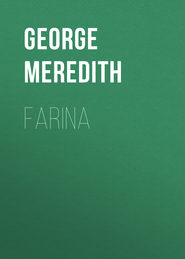По всем вопросам обращайтесь на: info@litportal.ru
(©) 2003-2024.
✖
The House on the Beach
Настройки чтения
Размер шрифта
Высота строк
Поля
"With pleasure," said Tinman. "It was your change of name, you know, Philip."
Look here, Martin. Van Diemen Smith was a convict, and my benefactor. Why the deuce he was so fond of that name, I can't tell you; but his dying wish was for me to take it and carry it on. He left me his fortune, for Van Diemen Smith to enjoy life, as he never did, poor fellow, when he was alive. The money was got honestly, by hard labour at a store. He did evil once, and repented after. But, by Heaven!"—Van Diemen jumped up and thundered out of a broad chest—"the man was one of the finest hearts that ever beat. He was! and I'm proud of him. When he died, I turned my thoughts home to Old England and you, Martin."
"Oh!" said Tinman; and reminded by Van Diemen's way of speaking, that cordiality was expected of him, he shook his limbs to some briskness, and continued, "Well, yes, we must all die in our native land if we can. I hope you're comfortable in your lodgings?"
"I'll give you one of Mrs. Crickledon's dinners to try. You're as good as mayor of this town, I hear?"
"I am the bailiff of the town," said Mr. Tinman.
"You're going to Court, I'm told."
"The appointment," replied Mr. Tinman, "will soon be made. I have not yet an appointed day."
On the great highroad of life there is Expectation, and there is
Attainment, and also there is Envy. Mr. Tinman's posture stood for
Attainment shadowing Expectation, and sunning itself in the glass of
Envy, as he spoke of the appointed day. It was involuntary, and
naturally evanescent, a momentary view of the spirit.
He unbent, and begged to be excused for the present, that he might go and apprise his sister of guests coming.
"All right. I daresay we shall see, enough of one another," said Van Diemen. And almost before the creak of Tinman's heels was deadened on the road outside the shop, he put the funny question to Crickledon, "Do you box?"
"I make 'em," Crickledon replied.
"Because I should like to have a go in at something, my friend."
Van Diemen stretched and yawned.
Crickledon recommended the taking of a walk.
"I think I will," said the other, and turned back abruptly. "How long do you work in the day?"
"Generally, all the hours of light," Crickledon replied; "and always up to supper-time."
"You're healthy and happy?"
"Nothing to complain of."
"Good appetite?"
"Pretty regular."
"You never take a holiday?"
"Except Sundays."
"You'd like to be working then?"
"I won't say that."
"But you're glad to be up Monday morning?"
"It feels cheerfuller in the shop."
"And carpentering's your joy?"
"I think I may say so."
Van Diemen slapped his thigh. "There's life in Old England yet!"
Crickledon eyed him as he walked away to the beach to look for his daughter, and conceived that there was a touch of the soldier in him.
CHAPTER IV
Annette Smith's delight in her native England made her see beauty and kindness everywhere around her; it put a halo about the house on the beach, and thrilled her at Tinman's table when she heard the thunder of the waves hard by. She fancied it had been a most agreeable dinner to her father and Mr. Herbert Fellingham—especially to the latter, who had laughed very much; and she was astonished to hear them at breakfast both complaining of their evening. In answer to which, she exclaimed, "Oh, I think the situation of the house is so romantic!"











